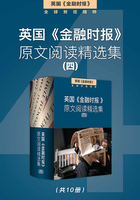
Daily Mail lawsuit hinges on definition of ‘public figure'(577 words)
By David Bond, Media Correspondent
The Daily Mail's hopes of avoiding an expensive bill from its legal battle with the wife of US presidential candidate Donald Trump are likely to rest on whether Melania Trump is considered a public or a private figure under US law.
Mrs Trump launched a suit against Associated Newspapers, the British parent company of the Daily Mail and Mail Online, late on Thursday over an August 20 article citing a Slovenian magazine's report that a modelling agency, which employed her in the 1990s, had also served as an escort service.
The Mail retracted the story in Friday's print edition and online. But it also insisted that the intention of the story had been to point out how the allegations “could impact the US presidential election even if they are untrue”.
Despite the retraction, Mrs Trump's lawyer Charles Harder said she would press ahead with the lawsuit, filed at the state circuit court in Montgomery County, Maryland. He added that she would be seeking $150m in damages.
Mr Harder successfully brought Hulk Hogan's lawsuit against Gawker Media for posting portions of a sex tape on its eponymous website. The retired wrestler, whose real name is Terry Bollea, was awarded $140m in damages. The payout prompted Gawker's sale to Univision and the closure of the website.
Under the First Amendment to the US Constitution, a public figure suing a newspaper for libel has to prove that the allegedly defamatory article was published with what is known as “actual malice”.
“Actual malice has to be something published in reckless disregard of the truth or falsity of what was published,” said Jerome Barron, law professor at George Washington University. “In other words, can the plaintiff show that they didn't care whether it was true or false?”
In contrast, anyone considered a private person under US law, only has to prove that what was published was false.
The article at the centre of the dispute was published by the Daily Mail, first in its UK printed edition and subsequently on Mail Online, about a month after Mrs Trump addressed delegates at the Republican party convention in Cleveland, Ohio.
Floyd Abrams, a partner at the law firm Cahill Gordon & Reindel said he had no doubt that Mrs Trump's appearance at the convention meant she would be seen as a public figure.
He also questioned why Mrs Trump had chosen to sue for libel in the US and not the UK.
“It's far, far easier to win a libel case in the UK than in America, even allowing for recent changes to UK legislation,” he said. “One possible explanation is that she is seeking to achieve maximum publicity in the US for the case.”
People at the Daily Mail told the Financial Times that the publisher had already committed to publishing a retraction before the case was filed in Maryland on Thursday.
Mr Abrams added the retraction could help reduce any future damages were the newspaper group to lose the case.
But even if Mrs Trump were to be awarded the full amount, it would not be catastrophic to DMGT's business model, people familiar with the company said. The $150m figure would represent around one-third of the media company's annual profit and around 5 per cent of its annual revenues.
“The Daily Mail is much more able to survive something like this as an established funded business rather than a start-up like Gawker,” said Alice Enders, an analyst with Enders.
请根据你所读到的文章内容,完成以下自测题目:
1.How much Mrs Trump would be seeking in damages?
A.$120m
B.$140m
C.$150m
D.$155m
答案
2.Which is not right about the actual malice?
A.reckless disregard of the truth
B.not consider party's feeling
C.falsity of what was published
D.not care whether it was true or false
答案
3.When was the disputed article published by the Daily Mail?
A.on Thursday
B.two months after Mrs Trump addressed delegates
C.about a month after Mrs Trump addressed delegates
D.not mentioned
答案
4.Why does Mrs Trump chose to sue for libel in the US and not the UK?
A.achieve maximum publicity in the US
B.easier to win a libel case in America
C.UK legislation has changed
D.no influence in the US
答案